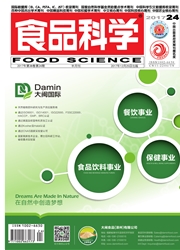

 中文摘要:
中文摘要:
肥胖进程中,脂肪组织中的巨噬细胞由抗炎性的M2(2型巨噬细胞)逐渐极化成促炎性的M1(1型巨噬细胞),M1分泌的促炎性细胞直接可以导致胰岛素抵抗等肥胖相关代谢综合症。由于体外常用细菌脂多糖(Lipopolysaccharide,LPS)诱导的促炎性巨噬细胞来研究脂肪组织中巨噬细胞的极化,但其与脂肪组织中M1的表型相差甚远;另外,粒细胞-巨噬细胞集落刺激因子(granulocyte-rnacrophage colony stimulating fac—tor,GIcsF)和巨噬细胞集落刺激因子(macrophage colony stimulating factor,M-CSF)可以诱导骨髓细胞分化为骨髓来源巨噬细胞(bone marrow-derived macrophage,BMDM)。文章发现GM-CSF诱导的巨噬细胞(GM-CSF-induced macrophages,GIVI-BMM)高表达脂肪组织M1型标志基因CDllc与NOS2和促炎性细胞因子IL6与TNFa;与此相反,M-CSF诱导的骨髓细胞分化的巨噬细胞(M-CSF-induced macrophages,M-BMM)高表达脂肪组织M2标志基因CD206和抗炎性细胞因子/L10。因此,GM-BMM和M-BMM更适合用于脂肪组织巨噬细胞极化的体外研究。
 英文摘要:
英文摘要:
In the process of obesity, macrophages polarize from anti-inflammatory M2 to pro-inflamma-tory M1 in adipose tissues. Inflammatory cells secreted from M1 can induce insulin resistance and obe-sity related metabolic syndrome directly. Lipopolysaccharide(LPS) is often used to induce pro-inflam-matory macrophages to study macrophages polarization in adipose tissues in vitro. However, LPS-in-duced macrophages are drastically different from M1 in adipose tissues. Furthermore, granulocyte-macrophage colony stimulating factor (GM-CSF) and macrophage colony stimulating factor (M-CSF)can induce bone marrow into bone marrow-derived macrophage(BMDM). It was found that GM-CSF-induced macrophages(GM-BMM) could strongly express adipose tissues related M1 markers genesCDllc and NOS2 and inflammatory cytokines IL6 and TNFa. On the contrary, M-CSF-induced mac-rophages(M-BMM) could highly express adipose tissues related M2 markers genes CD206 and anti-in-flammatory cytokines ILIO. Consequently, GM-BMM and M-BMM are more suitable for adipose tis-sues related macrophages polarization in vitro.
 同期刊论文项目
同期刊论文项目
 同项目期刊论文
同项目期刊论文
 Quercetin reduces obesity-associated ATM infiltration and inflammation in mice: a mechanism includin
Quercetin reduces obesity-associated ATM infiltration and inflammation in mice: a mechanism includin 期刊信息
期刊信息
